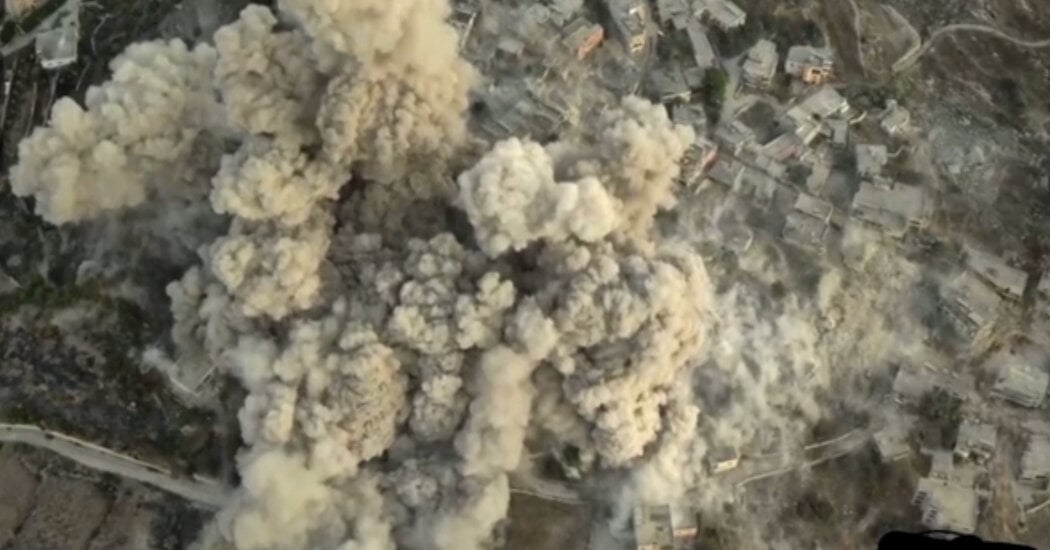- cross-posted to:
- [email protected]
- cross-posted to:
- [email protected]
At least 1,085 buildings have been destroyed or badly damaged since Israel’s invasion targeting the Hezbollah militia, including many in controlled demolitions, a New York Times analysis shows.
Satellite imagery and videos show widespread destruction in six villages along Lebanon’s southern border with Israel, revealing 1,085 buildings that have been leveled or badly damaged since its Oct. 1 invasion aimed at crippling the militant group Hezbollah.
Earlier this month, The New York Times, using satellite imagery, verified the destruction of scores of buildings in two other villages.
The images offer only a glimpse at the situation in southern Lebanon. There has been little access to the area since the invasion began and the extent of the damage is unclear.
. . .
According to The Times’s latest analysis, one village, Mhaibib, appears to have been virtually flattened, with only a handful of buildings still standing. In five other villages and towns, entire neighborhoods were reduced to rubble.
Southern LebanonGreater IsraelThere’s a (not very good) sketch comedy movie from the 70s called Tunnel Vision. Despite being a generally bad movie, it has its moments. Including this one.
DAMN! That’s fucking hilarious.
And also… you know. Sad. But boy: it’s wild how well that aged.
“‘Lebanon?’ Pfft, more like ‘lebensraum,’ amirite?” – Netanyahu, probably.
No shit.
Words that you won’t hear from the imperial mouthpiece…
Media Bias/Fact Check - News Source Context (Click to view Full Report)
Information for Media Bias/Fact Check:
Wiki: unreliable - There is consensus that Media Bias/Fact Check is generally unreliable, as it is self-published. Editors have questioned the methodology of the site’s ratings.
MBFC: Least Biased - Credibility: High - Factual Reporting: Very High - United States of America
The New York Times - News Source Context (Click to view Full Report)
Information for The New York Times:
Wiki: reliable - There is consensus that The New York Times is generally reliable. WP:RSOPINION should be used to evaluate opinion columns, while WP:NEWSBLOG should be used for the blogs on The New York Times’s website. The 2018 RfC cites WP:MEDPOP to establish that popular press sources such as The New York Times should generally not be used to support medical claims.
MBFC: Left-Center - Credibility: High - Factual Reporting: High - United States of America





